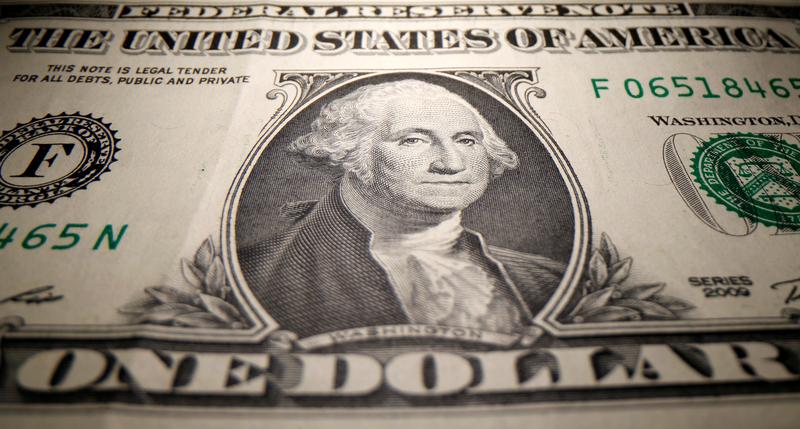LONDON (Reuters) – The dollar sank as global stock markets rallied on Monday, while riskier currencies such as the British pound, the Australian dollar and New Zealand dollar rose.
The Japanese yen halted three consecutive days of losses, gaining on the dollar after hitting its lowest in over two months last week.
The U.S. currency declined against most of its peers as Asian and European stocks rallied following four days of losses.
Earlier the greenback had found support as traders remained wary that retail investors who had organised online might continue their assault on hedge fund short positions, sparking more volatility.
However, the crowd’s focus appeared to have shifted squarely to silver. Spot silver prices were up nearly 9% in early London trading on Monday.
Strategists at ING said the rise in silver is “a standout” in a relatively subdued opening for commodity and FX markets this week.
“Presumably swarmers may find that the depth in global commodity markets means that retail buying may have less of an impact here than it does on a single stock,” they said in a note to clients.
“Equally if turning their attention to FX markets, where speculators are heavily short dollars, swarmers may struggle to rationalise a long silver and a long dollar recommendation.”
Against a basket of peers, the dollar traded flat. The index that measures its strength has been largely range-bound in recent weeks, after bouncing from a nearly three-year low of 89.206 at the start of the year.
The pound was the biggest gainer in the G10 group of currencies, up 0.3% on the day at $1.3732.
The yen traded flat at 104.76 yen per dollar.
The Australian and New Zealand dollars traded flat, giving up some gains by 0839 GMT.
The euro fell 0.2% to trade at $1.2111
Elsewhere, the Norwegian crown fell half a percent against the dollar to 8.5796 crowns per dollar.
Jens Naervig Pedersen, chief analyst for FX and rates strategy at Danske Bank, noted the Norway central bank’s Friday announcement of a substantial increase in the daily pace of its fiscal Norwegian crown buying from 800 million crowns in January to 1,700 million in February.
While an increase was expected, its size was a surprise, he said, with the implications of the announcement two-fold.
“First, it means the Norges Bank will buy 18 billion more NOK in February than in January, which adds a flow supportive argument to NOK after a week where the stagnating reflation theme weighed,” he said.
“Secondly, the larger NOK buying pace will drain liquidity from the interbank market, which puts upward pressure on NOK FRA/OIS spreads. By extension, this will improve the carry case of a long NOK position.”
Source: Read Full Article
